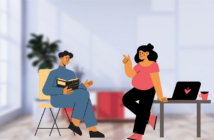Brain injuries are amongst the worst kinds of injury that a human being can suffer. The brain’s fundamental role in everything from our movement to our sense of self makes it a sensitive organ to injure. A common statistic used to describe the commonality of brain injuries is that 1.4 million people are admitted to hospital each year with one. However, with many mild injuries never fully reported, this estimate is a conservative one – and one that belies the long-term impacts that even mild injuries can have.
Kinds of Brain Injury
Every brain injury is unique and individual, purely on account of the complexity of the brain as an organ; the same accident, suffered the same way, could cause different impacts owing to the uniqueness of brain structures between people. However, there are similarities in symptoms that can be attributed to specific causes of injury. Typically, brain injuries are categorised by the method of injury as opposed to their impacts.
Acquired Brain Injuries, or ABIs, describe the most common forms of brain injury; these are injuries that occur after birth, and that do not stem from hereditary or congenital causes. TBI stands for Traumatic Brain Injury, and refers to any physical injuries where the head or brain is struck. Other forms of ABI include strokes and encephalitis, where swelling or constriction impede the brain. But what are the symptoms and impacts that brain injury can have, particularly in the long term?
Mobility and Physical Activity
The most obvious impacts of brain injury to others are physical in nature. These can also be extremely impactful for quality of life, depending on the severity of the situation. The body’s nervous system is a complex and delicate thing, and brain injuries can interrupt it in myriad ways – whether limiting motor control and affecting the ability to control their bodies movements, or introducing problems such as tremors, memory loss or seizures.
Where someone’s livelihood depends on their physical health, an accident resulting in an ABI can have profound and rippling effects. Often the only recourse for recovery and rehabilitation is via brain injury claims, where compensation can be awarded for accidents outside of the victim’s control. This can not only help to compensate the victim but can financially help to provide funding for any rehabilitation processes, as well as the costs of support, care and any accessibility equipment they may need around their home due to the brain injury.
Speech, Cognition, Behaviour
But not all impacts are visible, or purely physical. That same interruption of the nervous system could make speech difficult, but so too could any impacts on the learning or language centre of the brain. Likewise, damage to neuronal connections in the brain can result in significant alterations to cognitive ability, and even alter aspects of someone’s personality altogether. It has been researched that damage to the left side of the brain can lead to difficulties with speech and communication, logic and understanding others. Whereas damage to the right side of your brain can negatively affect the ability to process visual information and your ability to perform regular tasks.
Mental Health
Brain injuries can have both direct and indirect impacts on the mental health of a given victim. Directly, neuronal damage can introduce symptoms of mental illness; it is well-documented that frontal lobe damage can be connected to the development of schizophrenia.
The various ways in which an injury can alter someone’s life or trajectory can also have passive, indirect consequences for mental wellness. The non-linearity of recovery and rehabilitation can be demoralising, as can the realisation that the ‘normalcy’ of life before the injury may not be achievable. As such, mental health support is a vital ancillary factor.
Support and Care
Finally, depending on the severity of the brain injury, this could lead to different levels of care being needed to provide you with the support you need in your day-to-day life. This could range from a carer or nurse coming in a few times a week, to a permanent carer or loved one looking after you, which is the case in serious brain injury situations.
It is important for family members and friends that are looking after a brain injured person to ensure they take precautions to not burn themselves out due to the ongoing care. This may be the case if a loved one with a full-time job is looking after the brain injury sufferer. In this case, it is a good idea to reach out and find other family members who can share the role of care, or alternatively, you can reach out to support groups and look to get help from professionals to care for your loved one and give professional advice for how to give the best support.




